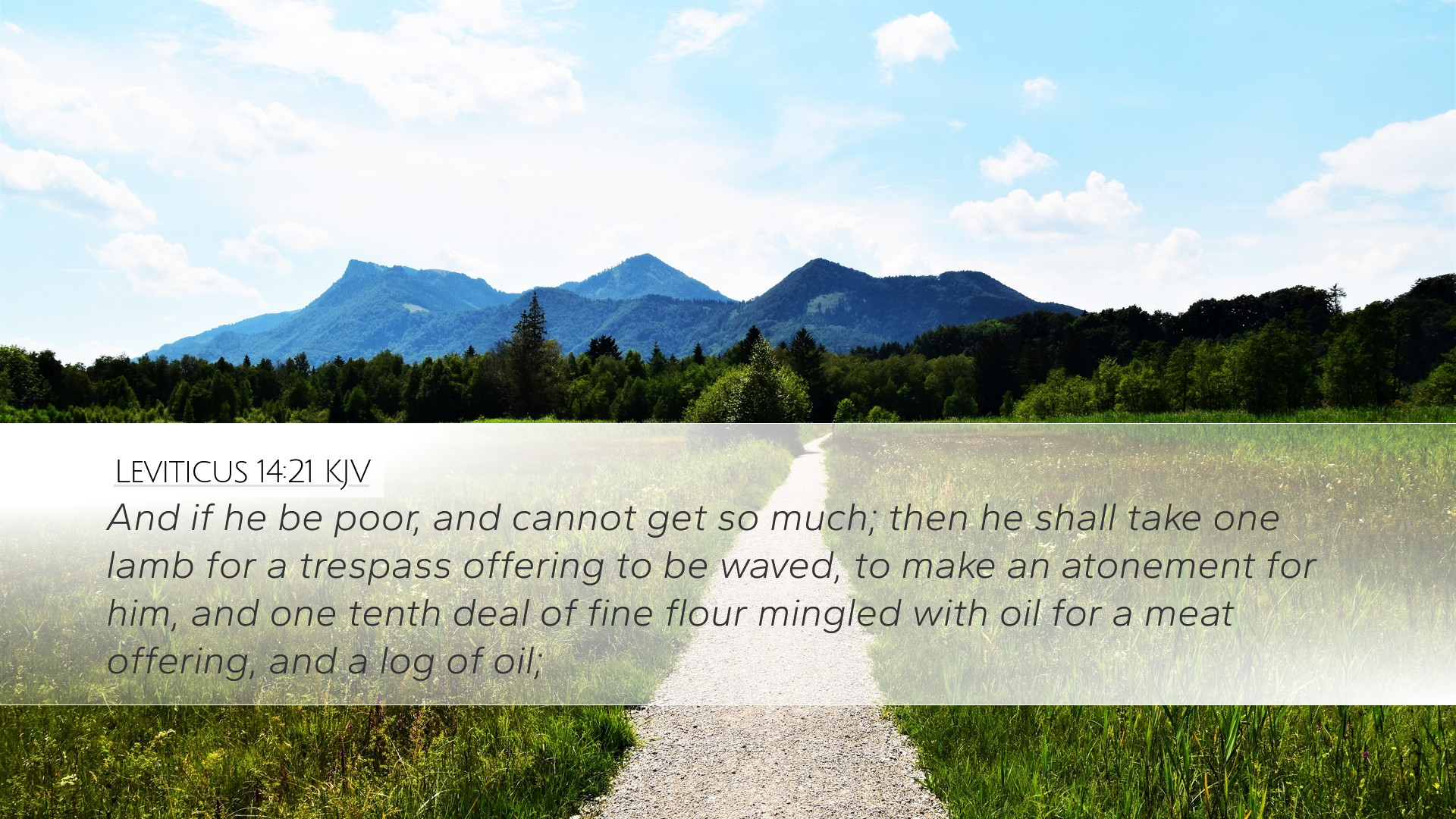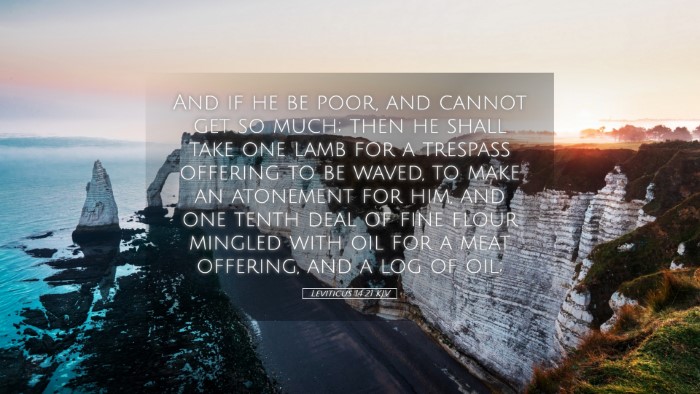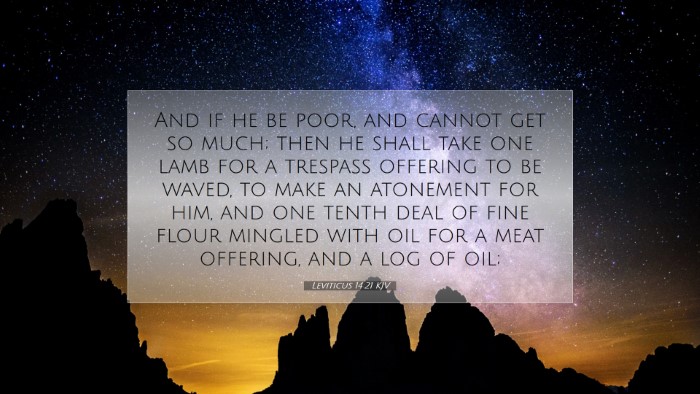Commentary on Leviticus 14:21
Bible Verse: Leviticus 14:21 - "And if he be poor, and cannot get so much; then he shall take one lamb for a trespass offering to be waved, to make an atonement for him, and one tenth deal of fine flour mingled with oil for a meat offering, and a log of oil."
Introduction
Leviticus 14 addresses the laws surrounding the cleansing of a leper. This chapter is critical for understanding the holistic nature of ancient Israel's sacrificial system, as it provides a means through which the poor can participate in the ritual of atonement despite limited resources. This commentary will explore the implications of Leviticus 14:21 as interpreted by prominent public domain scholars.
Contextual Analysis
This verse comes within a larger narrative concerning leprosy, a condition that was met with severe social and religious stigmas. The provisions set forth in this text demonstrate God's concern for all members of Israelite society, including the economically disadvantaged.
Insights from Commentators
Matthew Henry's Commentary
Henry highlights the grace embedded in God’s laws for the poor, noting that it reflects the divine benevolence that accommodates all societal tiers. He emphasizes that even in ritual observance, God’s mercy is evident:
- Provision for the Poor: Henry points out that the requirement for a lamb is reduced to a more attainable offering, making atonement accessible for the less fortunate.
- Symbolism of the Offerings: He explains the significance of using both a trespass offering and food offerings, symbolizing both a desire for reconciliation with God and a recognition of the daily sustenance from Him.
Albert Barnes' Notes on the Bible
Barnes elucidates the nature and purpose of the offerings specified in this verse:
- Understanding 'Trespass Offering': He clarifies that this offering acknowledges sin before God and serves the dual purpose of atonement and restitution.
- Measurement Specifications: The measures provided in the text (one lamb, one tenth deal of fine flour, and a log of oil) illustrate an economy of sacrifice, allowing even the poor to participate without overwhelming financial burden.
Adam Clarke's Commentary
Clarke places attention on the theological implications of the sacrificial system as depicted in this verse:
- Holistic View of Atonement: Clarke insists that the inclusion of various offerings points toward a comprehensive understanding of atonement that encapsulates not just sin but also gratitude to God for provision.
- Covenantal Faithfulness: He also identifies the act of bringing an offering as an essential part of maintaining relationship and covenant with God, reflecting the value of faith even in poverty.
Theological Implications
This verse and its commentaries illustrate several key theological points:
- Divine Compassion: God's laws reveal His character as compassionate, providing a means of cleansing and restoration for all, particularly those burdened by loss of status due to sickness.
- Inclusivity in Worship: The comprehensive nature of the sacrificial system allows inclusivity, ensuring that worship and atonement are not limited by socioeconomic status.
- Faith and Works: The combination of faith demonstrated through the sacrificial act and the works required in offering gifts highlights the interactive nature of a relationship with God.
Conclusion
Leviticus 14:21 serves as a profound reminder of God's heart for justice and mercy. Each offering—from the lamb to the grain and oil—encourages a personal consideration of our call to worship and atone. Understanding this passage through the insights of esteemed commentators emphasizes the ongoing relevance of these ancient texts, encouraging believers to uphold equity, mercy, and faithful stewardship in their religious and communal lives.


